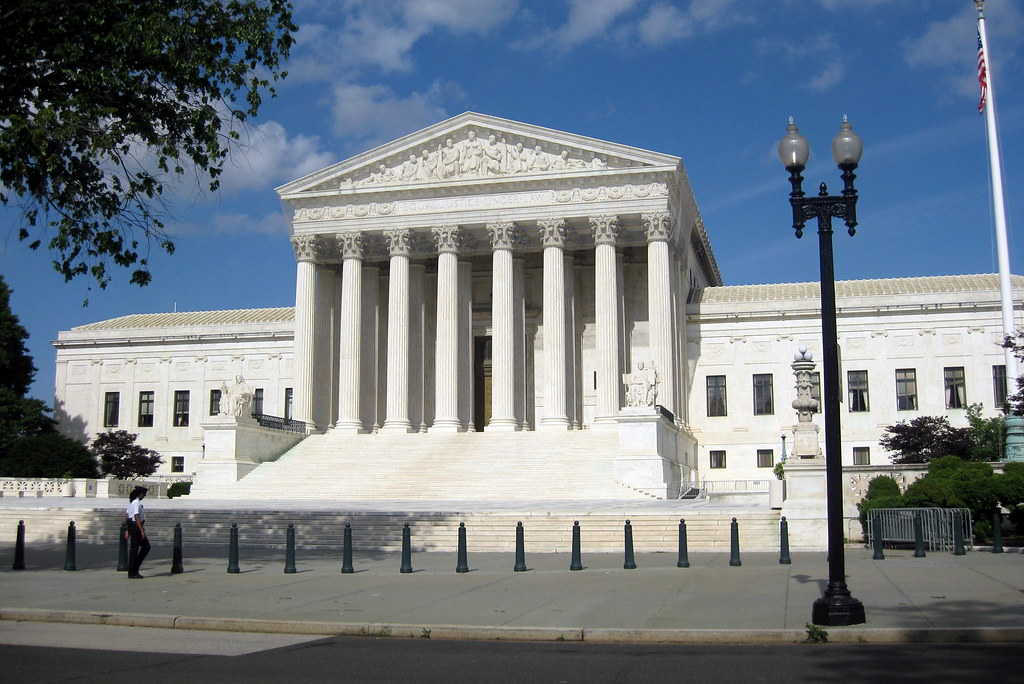Because the US Supreme Court trumpets on emissions from power plants

The Supreme Court ruled that the US government's environmental protection agency cannot regulate emissions from coal and gas power plants. All the details and consequences
The United States Supreme Court on Thursday issued a ruling limiting the power of the Environmental Protection Agency (EPA: it is a body of the American federal government) to enact regulations to reduce carbon dioxide emissions from power plants.
More specifically, the Court ruling – there were six judges in favor, the conservative ones; while the opposites were three, those of liberal orientation – reduces the possibility for the EPA to regulate emissions generated by coal and gas plants through the Clean Air Act, an important law on air pollution dating back to 1963 but amended many times.
The agency's authority to impose emission standards on power plants will depend on the authorization received from Congress.
WHAT BIDEN SAID
The ruling, Reuters writes, complicates Joe Biden's administration's plan to cut emissions and transition to renewable energy. The president called it "another devastating decision that aims to make our country regress", referring to the recent rulings of the body on the lifting of restrictions on the carrying of weapons in public and on the cancellation of the right to abortion. federal level.
"While this decision risks damaging our nation's ability to keep clean air and fight climate change," Biden said in a statement, "I will not stop using my legitimate authorities to protect public health and address the climate crisis ".
THE CONSEQUENCES
But the Supreme Court ruling could have consequences that go far beyond the EPA and could affect any big decision made by federal agencies. In fact, the conservative majority of the body has shown that it does not like the vast federal regulatory authority and may want to reduce the power of other government agencies.
The EPA, now, will therefore no longer be able to issue stringent regulations for power plants, in order to push them to use different and low-emission energy sources. The electricity sector is worth about a quarter of the greenhouse gas emissions of the United States (the country is the second largest emitter in the world, after China), and Biden would like to completely decarbonise it by 2035: reaching the goal could become more complicated, after the ruling of the Supreme Court.
THE BACKGROUND
The Supreme Court overturned a 2021 decision by the District of Columbia Court of Appeals that rejected the Affordable Clean Energy rule of former President Donald Trump, a conservative Republican. The rule would have imposed restrictions on a particular section of the Clean Air Act, Section 111, which gives the EPA the authority to regulate emissions from power plants.
Trump's rule – Reuters reconstructs – was intended to replace the Democratic and progressive Clean Power Plan of ex-President Barack Obama, which provided for substantial reductions in CO2 emissions by the electricity sector. However, in 2016 the Supreme Court blocked Obama's plan, which used Section 111 of the Clean Air Act to incentivize the use of cleaner energy sources for electricity generation.
"FEDERAL PREVARICATION"
Thursday's Supreme Court ruling comes after a lawsuit brought by a group of US states headed by West Virginia, where a major coal industry is based: asking justice to limit the EPA's authority to regulate its operation. of power plants nationwide. West Virginia Attorney General Patrick Morrissey called the court's decision a "great victory over federal abuse and the excesses of the administrative state."
This is a machine translation from Italian language of a post published on Start Magazine at the URL https://www.startmag.it/energia/corte-suprema-epa-emissioni-centrali/ on Fri, 01 Jul 2022 08:48:22 +0000.
